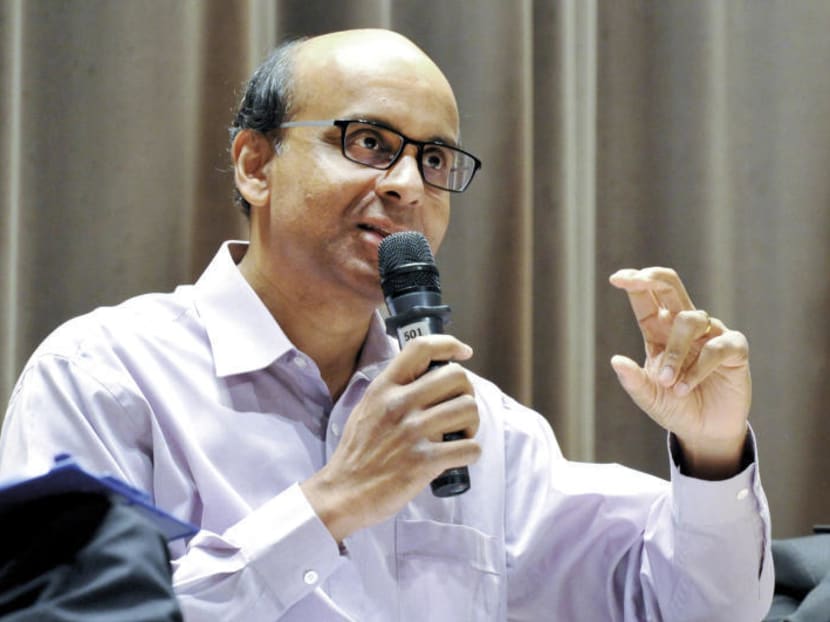SkillsFuture Council eyes integrated system of education, training for all
SINGAPORE — Bite-sized learning options for tertiary students and employees, and employers’ recognition of skills and mastery, are among the key directions sketched out during the SkillsFuture Council’s inaugural meeting today (Nov 5).
SINGAPORE — Bite-sized learning options for tertiary students and employees, and employers’ recognition of skills and mastery, are among the key directions sketched out during the SkillsFuture Council’s inaugural meeting today (Nov 5).
The 25-member council, chaired by Deputy Prime Minister Tharman Shanmugaratnam, will develop an integrated system of education, training and career progression for all Singaporeans. The setting up of the tripartite council was first announced by Prime Minister Lee Hsien Loong at this year’s National Day Rally.
Speaking to reporters after the three-and-a-half hour meeting, Mr Tharman said: “SkillsFuture is about becoming a truly advanced society. One which has a competitive economy, but also one in which every Singaporean is able to achieve their fullest potential, stretch their potential and achieve their aspirations in life ... This is a way in which we can help workers advance through multiple pathways ultimately, it’s the way we build an inclusive society.”
One of the council’s emphases, said Mr Tharman, is developing a system that includes “a whole range of flexible, modular and bite-sized learning options”, both in schools and in continuing education.
Modular courses ensure flexibility, which will not only allow individuals to respond to a changing workplace, but to anticipate future skills in demand.
Such options can also encourage working adults to continue learning, he said. “In continuing education, for adults, there is sacrifice involved when you go for learning…if you keep courses short — three-month courses for example — people are more willing to make that sacrifice.”
Another key strand of the council’s discussions is boosting employers’ recognition of skills mastery -- not just for individual employers, but at an industry-wide level.
The industry benefits if leading players invest in their employees, even if they may not retain all of them, said Mr Tharman.
“If a large core of employers in each sector get on this journey, agree on skills standards and invest in their people, what goes around comes around,” he said.
For a start, the council, in collaboration with employers, will develop sector-focused frameworks for skills advancement for a few key sectors next year.
“It has got to be relevant to them. It has to allow for some free play for each employer, because they’ve got very specific needs ... But neither can we just leave it to the market, leave it to individual employers to do their own thing. There has to be some degree of coordination,” Mr Tharman said.
A SKillsFuture Jubilee Fund, announced on Monday, will also support employers in developing their workers. The fund has a S$30 million target, and the Government will match donations dollar for dollar.
Council member Adjunct Professor Aziz Amirali Merchant, who is Executive Director (Engineering) of Keppel FELS Limited, said skills advancement has to be part of a company’s overall human resource strategy.
“Once you have attracted individuals to join your company, you engage them, develop them to their full potential, and then reward them. If you have a clear human resource strategy, you will be able to excite the individual to stay with your company,” he said.
Another council member, biomedical firm Fluidigm Singapore’s managing director Grace Yow, said it is inevitable that employees, often the younger ones, may want to change companies. “Sometimes we gain, sometimes we lose. There are other employees trained by other companies as well. Sometimes, when people move around, that exposure helps.”
Asked how the council’s emphasis on modular options will complement the current skills training framework, Ms Yow said it hopes to promote such options across more sectors and tap on multiple employers and institutions as training providers.
Next year, the council will take forward key recommendations made by the Applied Study in Polytechnics and Institute of Technical Education (ITE) Review, such as launching place-and-train programmes polytechnic and ITE graduates, and enhancing polytechnics internships for selected sectors.







